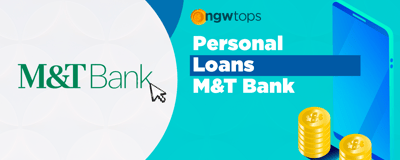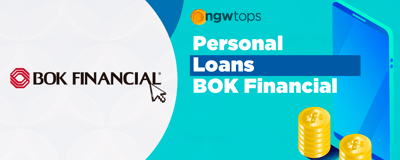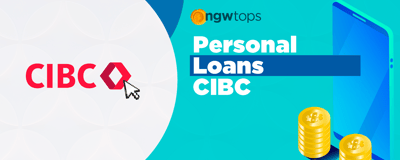High-Interest Loan Alternatives: 6 Smart Borrowing Options

In an economic landscape where high-interest loans are becoming increasingly common, consumers need to be aware of smarter alternatives for borrowing. Many borrowers find themselves trapped in cycles of debt due to exorbitant interest rates, leading to financial stress and uncertainty. Thankfully, there are several options that can provide relief and support your financial needs without the burden of high-interest payments.
1. Credit Unions

Credit unions are non-profit financial institutions owned by their members, which allows them to offer lower interest rates compared to traditional banks. Since they are not driven by profit, credit unions often emphasize community and personal service. This makes them a solid choice for individuals seeking loans without the hefty price tag of high-interest rates.
Many credit unions offer a range of loans including personal loans, auto loans, and mortgages, often with competitive rates and flexible repayment terms. Qualifying for a loan can be easier through a credit union, especially for people with good membership histories or for those who may have a lesser credit score.
- Lower interest rates than traditional banks
- Flexible repayment terms
- Community focus and personal service
- Potentially easier qualification criteria
- Membership perks and services
Overall, credit unions can serve as an excellent alternative to high-interest loans. By opting for a credit union, borrowers not only save money in interest but also engage with a supportive community that prioritizes their needs. For anyone looking for a loan option that adheres to responsible borrowing principles, checking out local credit unions should be one of the first steps.
2. Personal Loans from Banks

While banks often carry a reputation for higher fees and stringent approval processes, many traditional banks still offer personal loans with competitive interest rates. The advantage of obtaining a personal loan through a bank is the robust level of customer service and the convenience of managing your finances under one roof.
Banks typically allow borrowers to specify the purpose of their loan, whether it be consolidating debt, covering unexpected expenses, or financing a significant purchase, which can help in tailoring repayment plans to meet individual needs.
- Fixed or variable interest rates available
- Loan terms can be customized based on the borrower's needs
- Potential for substantial loan amounts
- Secured and unsecured loan options
It’s crucial to check the loan terms carefully and ensure that you comprehend the repayment obligations before signing any agreements. While not as low as credit unions, personal loans from banks can still serve as a viable alternative to high-interest loans for those with good credit.
3. Peer-to-Peer Lending

Peer-to-peer (P2P) lending platforms have revolutionized the way individuals can secure loans by directly connecting borrowers with investors. This approach cuts out the middleman typically associated with banks. Borrowers can often find competitive interest rates and flexible terms compared to traditional lending institutions.
The application process for P2P lending platforms is typically performed entirely online and requires only a few steps. Borrowers can present their financial needs, and investors can assess the risk to determine whether they would like to fund the loan.
- Competitive interest rates influenced by direct negotiation
- Simplified online application process
- Variety of loan amounts and terms available
- Faster approval times compared to banks
P2P lending can diversify borrowing options, making it accessible to individuals who may not qualify for conventional loans. However, it is essential for borrowers to understand the platform fees, which can affect the overall cost of the loan itself.
In summary, peer-to-peer lending offers a modern approach that democratizes access to funding, making it a popular choice among individuals seeking lower-cost borrowing solutions.
4. Family and Friends

Borrowing from family and friends is often seen as a last resort; however, it can be an effective alternative to high-interest loans. When borrowing from loved ones, the interest rates (if applicable) can be remarkably lower than those from banks or credit platforms, making it a financially wise choice.
It's essential to approach these discussions with transparency and clarity. By formalizing the loan with appropriate documentation, both parties can establish terms that protect the lender and borrower, preventing misunderstandings in the future.
- Lower or no interest rates
- Flexible repayment schedules
- Personalized terms compared to traditional lenders
- Opportunity for emotional support during the borrowing process
Despite the potential benefits, one must be cautious when mixing finances with personal relationships. Establishing clear terms can help mitigate tension that could arise if the loan isn't repaid on time. Still, family and friends can be a great resource when you need financial help without the burden of high-interest loans.
5. Low-Interest Credit Cards

Many consumers overlook credit cards as a borrowing tool outside of standard purchases. If managed responsibly, low-interest credit cards can provide a feasible line of credit for emergencies or larger purchases without immediate high-interest penalties.
Dependent on the creditworthiness of the individual, some credit cards offer promotional rates or low-interest options that can help minimize overall borrowing costs. This can be an attractive alternative to taking out a personal loan or securing high-interest financing.
- Research and compare available cards
- Review terms carefully, including interest rates and fees
- Consider promotional periods for balance transfers
- Use cards selectively and pay off balances promptly
- Monitor your credit score regularly to secure better rates
Overall, low-interest credit cards can be a practical tool for managing finances. However, understanding their terms and maintaining healthy credit utilization is essential to avoid slipping into debts associated with high-interest rates.
6. Employer-Based Loans

Some employers offer loan programs as part of their benefits package, providing employees with direct access to financial resources. Such loans are typically offered at lower interest rates and can be deducted directly from paychecks, granting employees an effortless way to repay.
Employer-based loans are particularly beneficial for individuals who may not have other favorable borrowing options due to credit issues or lower income levels. These loans often offer financial literacy programs alongside them, helping employees manage their personal finances better.
- Check if your employer offers loan programs
- Understand the terms and fees associated with the loan
- Evaluate the necessity of the loan before applying
- Learn financial management through offered programs
- Ensure timely payments to maintain a good relationship with your employer
In summary, employer-based loans can provide unique opportunities for employees looking to borrow responsibly. They often come with a support system designed to help with financial health while avoiding high-interest loan pitfalls.
In Conclusion

When faced with the need for financial assistance, it’s crucial to weigh your options carefully. The market offers various borrowing solutions, each designed to meet different needs and financial situations. By exploring alternatives to high-interest loans, you open the door to healthier financial practices and long-term stability.
Be proactive in seeking out options that reduce your overall financial burden and align with your ability to repay. Awareness of these alternatives can empower you to make informed decisions that support both your immediate needs and future financial well-being.






